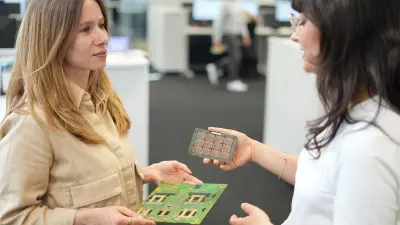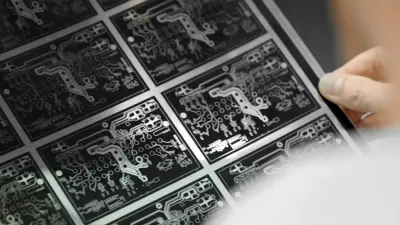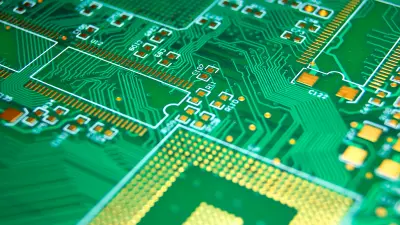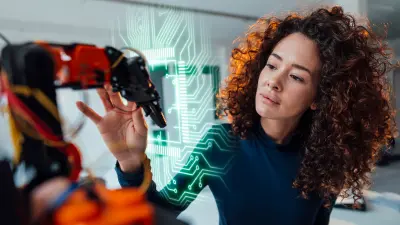AI and PCBs: Transforming design, procurement, and manufacturing
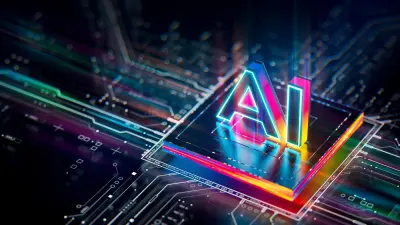
The relationship between Artificial Intelligence (AI) and printed circuit boards (PCBs) represents a fundamental transformation in the electronics industry. This transformation is twofold: while AI applications drive unprecedented demand for more sophisticated PCBs, AI technologies are simultaneously revolutionizing how we design, procure, and manufacture these essential components.
Market dynamics and industry growth
The surge in AI implementation across industries is creating significant increases in demand for PCBs, particularly those designed for AI servers and related infrastructure. Market analysts project a remarkable 12% annual growth rate for AI-server-related PCBs between 2024 and 2029, driven by expanding applications in data centers, edge computing, and AI acceleration hardware.
"For AI acceleration hardware, you need sophisticated platform PCBs that can handle high-speed signals while managing thermal challenges," explains Martin Jovanov, Technical Expert at Bosch’s copperdot PCB procurement service. "This isn't just about increasing production—it's about integrating special high-speed PCB designs, employing advanced materials and heat-relief technology in order to handle these intense computational demands."
AI-powered specification management and supplier selection
In addition, the integration of AI has fundamentally transformed how PCB specifications are processed and how suitable manufacturing partners are identified. At the core of modern PCB procurement is an AI system that automatically extracts and analyzes technical specifications from multiple file formats, creating a consolidated view of project requirements regardless of how the information was submitted.
"The traditional RFQ process requires extensive manual review of customer specifications, drawings, and design files," notes Jovanov. "AI systems now parse these documents automatically, extracting critical information about specifications and technical requirements in a fraction of the time."
These systems employ sophisticated algorithms that can:
- Identify and flag discrepancies across different documentation sources
- Assess manufacturability and potential production challenges
- Review design rules compliance
- Evaluate technology requirements
- Generate accurate quotes based on current pricing matrices
"The AI system evaluates not just price points, but matches technical requirements with supplier capabilities," Jovanov explains. "It considers factors like technology level, production capacity, and historical performance to suggest the most suitable manufacturers for each project. This is particularly valuable when dealing with complex specifications that require specialized manufacturing capabilities."
AI in manufacturing processes
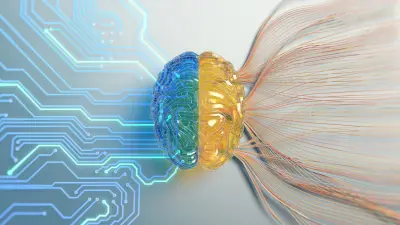
The impact of AI extends throughout the manufacturing process, particularly in Industry 4.0 facilities. "In modern PCB manufacturing, AI isn't just about automation—it's about intelligent process control," describes Jovanov. "These systems can predict potential issues, adjust parameters in real-time, and ensure consistent quality across production runs."
Advanced manufacturing systems include:
- Robotic transport systems with real-time path optimization
- AI-controlled conveyor systems managing complex production flows
- Automated material replenishment systems
- Smart storage and retrieval systems
Future developments and industry trends
"The capabilities of AI systems will only increase as they learn from more cases," Jovanov predicts. "Each specification reviewed, each design validated, and each production run completed adds to the system's knowledge base, making it more efficient and accurate."
These developments are particularly evident in several key areas:
- Expanded capability in handling complex specifications
- Improved accuracy in technical requirement extraction
- More sophisticated supplier matching algorithms
- Advanced production optimization
"Also, the integration of AI in quality control will represent a significant advancement in PCB manufacturing," notes Jovanov. "These systems will predict potential failures based on subtle pattern variations, adjust process parameters in real-time, and correlate defects across different production stages to identify root causes. This predictive capability is going to help prevent issues before they impact production quality."

Integration and connectivity
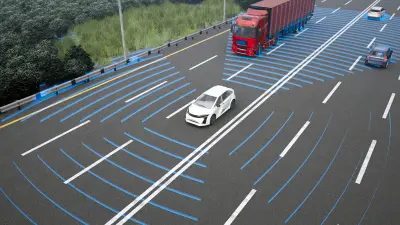
The future of PCB manufacturing lies in seamless integration across all aspects of the production process. Advanced AI systems are enabling unprecedented connectivity between design and manufacturing systems, allowing real-time adjustments and optimizations throughout the production cycle. This integration extends to production monitoring, where AI systems can track and adjust manufacturing parameters in real time, responding to variations in conditions or materials before they affect product quality. The technology also enables comprehensive documentation and traceability, automatically generating detailed records of every aspect of the production process. Perhaps most significantly, these systems are beginning to enhance supply chain integration, creating direct links between design decisions, material requirements, and supplier capabilities.
Challenges and considerations
Despite the promising outlook, several key challenges require attention:
"One of the key challenges is dealing with non-standardized specifications," Jovanov explains. "Different customers present information in different ways, and AI systems need to be robust enough to handle these variations while maintaining accuracy."
Additional challenges include:
- Integration with existing workflows
- Training requirements for staff
- Managing the transition period
- Maintaining human oversight where necessary
"The system continues to learn and improve with each project, helping us identify the best manufacturing solutions for our customers' specific needs while optimizing costs.”
Conclusion

The integration of AI in PCB design, procurement, and manufacturing represents a significant step forward for the industry. While AI continues to drive demand for more sophisticated PCBs, it also provides the tools needed to meet this demand efficiently and accurately.
For PCB designers and purchasing professionals, understanding these AI capabilities is becoming increasingly crucial. The technology not only streamlines everyday processes but also enables more informed decision-making and better results. As AI systems continue to learn and evolve, we can expect even more sophisticated capabilities to emerge, further transforming how we approach PCB development and production.
As a procurement service that has begun integrating AI technologies since its inception, copperdot understands the transformative potential of artificial intelligence in PCB procurement and manufacturing. Our AI-powered systems already cover the initial RFQ process, automatically analyzing technical specifications, matching requirements with optimal suppliers, and ensuring quality standards are met consistently.
"The system continues to learn and improve with each project, helping us identify the best manufacturing solutions for our customers' specific needs while optimizing costs,” notes Jovanov. “As AI technology evolves, we're committed to staying at the forefront of these developments, ensuring our customers always benefit from the latest advances in PCB procurement and quality assurance."
